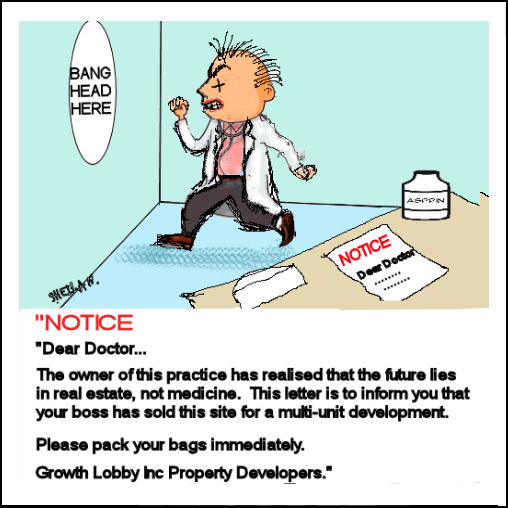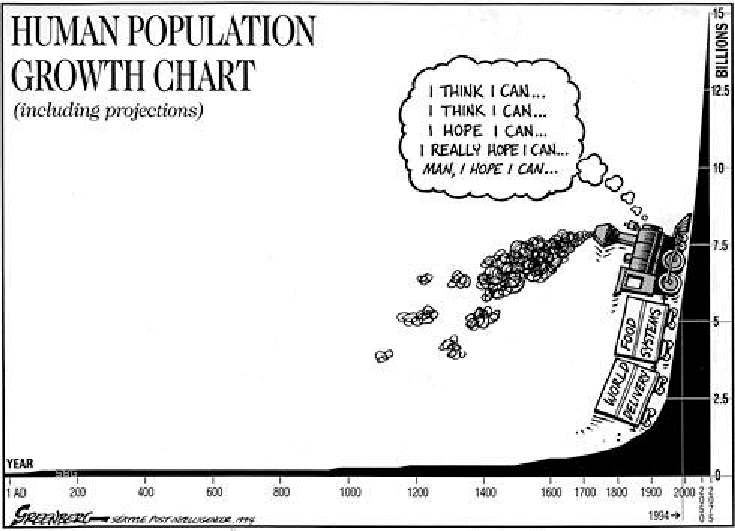Video: Food crisis in Australia no-one is talking about
Short simple video gives a good overview.
Short simple video gives a good overview.
 Workers in Australia took a 4.6% real term pay cut in 2022, losing on average AUD $4,163 and working almost 10 days effectively unpaid because wages did not keep up with inflation, reveals new analysis from Oxfam ahead of International Workers Day.
Workers in Australia took a 4.6% real term pay cut in 2022, losing on average AUD $4,163 and working almost 10 days effectively unpaid because wages did not keep up with inflation, reveals new analysis from Oxfam ahead of International Workers Day.
The total losses for workers in Australia was AUD $58 billion, while the increase to the minimum wage was 1.3% below inflation.
 Should we start indexing wages to property prices, since wages cannot keep up with property price inflation, and property is not included in the CPI? This is the subject of this logical and innovative article, republished from ABC Australia.
Should we start indexing wages to property prices, since wages cannot keep up with property price inflation, and property is not included in the CPI? This is the subject of this logical and innovative article, republished from ABC Australia.
New waves of protests against rising living costs amid an escalating energy crisis have hit Europe in recent days, as many people were angry about their governments waging war on their own people by following the US in sanctioning Russia over the Ukraine crisis.
Over the weekend, protests filled the streets of Paris, Berlin and Prague with some shouting out "leave NATO" or "Our country first", according to media reports, which analysts said hinted at a deeper crisis that Europe is now facing.
 This article is about the real reason why the medicare rebates don't cover the cost of doctors' services and therefore why the practice of general medicine is increasingly unsatisfactory for doctors and patients.
This article is about the real reason why the medicare rebates don't cover the cost of doctors' services and therefore why the practice of general medicine is increasingly unsatisfactory for doctors and patients.

I was inspired to attempt this article by a letter just published in the Age because it articulated my own concerns. The only thing it lacks is that it fails to give the principle reason for the very high costs of running a medical practice.
The truth is Medicare needs to be reformed
It is particularly galling that Labor has adopted the catchcry "Save Medicare". Apparently Medicare is sacred and untouchable. This attitude prevents any possibility of the reform that it desperately needs. It is also galling that Labor is spruiking that the removal of the freeze on rebates will allow GPs to keep bulk billing and this will "save Medicare". The current rebate for a standard GP consultation lasting up to 20minutes is $37.05. Without the freeze, the rebate would be around $39 and by mid-2018 around $40. If GPs had to depend on such paltry amounts for their incomes, Medicare would have died a long time ago.
The truth is that GPs who do not see a patient every six minutes can continue to bulk bill by supplementing their incomes with various care plans, health assessments, home medicine reviews, case conferences, practice incentive payments etc. These processes allow GPs to generate a reasonable income, but there has never been proof that they improve health outcomes. The lowly consultation rebate, frozen or not, encourages GPs to manufacture incomes from these dubious methods. Some, dare I say it, "dodgy" doctors do more than their fair share of "dodgy"' care plans.
The most important 15 minutes in the health system is the consultation with GPs. It must be valued appropriately so that GPs can take a patient's history, examine them and think about a treatment plan that avoids the current blowout of follow-on costs in investigations and referrals. Medicare must be reformed. Neither Labor nor the Coalition have the honesty and courage to do this. It is more complicated than Labor's puerile and disingenuous sloganeering suggests.
Dr Philip Barraclough, Highett
I'll give you a hint. It's not the insurance costs.
A couple of years ago I went for an interview at a GP clinic in an inner suburb of Melbourne, in the region of Armadale or Toorak. It was explained to me that the practice tried to limit the amount of time spent with patients and to make up costs by running various electronic, self-evaluating programs, to diagnose various mental health issues, such as depression. The hard-faced GP interviewing me was keen to tease out any tendency I might have to spend time on supportive or other psychotherapy and it didn't take him long to detect these.
"That might be alright for a GP practising in the outer suburbs," he sniffed, "But there is no way we are going to cover costs here and make a profit by spending time with patients. Our mental health nurses here have got it down to a fine art. They use self-evaluation forms as a way of interacting therapeutically with the patients and then they use the same forms for their reports. Personally I think you may be a little too one-to-oneish for this practice."
I needed the job, so tried to sound very flexible on these issues, but he wasn't fooled. He asked me whether I had any political philosophy and, before I could answer, he told me that I really should get familiar with Ayn Rand. He was the first person I have ever met, outside a novel, with the exception of some 'counter-culture' heroine addicts in the 1980s, who had ever expressed any open approval of this writer. I had heard that Rand's 'objectivist' philosophy had enjoyed a resurgence with US and other neocons, but I admit that I was shocked to find her lurking in a Melbourne GP clinic. I guess that made me naive, however, if I knew my GP was an avid fan of Ayn Rand, I would run a mile!
But, anyway, the thing that most interested me about this job interview was the acknowledgement that the cost of rental and real-estate in Australia, particularly within the inner suburbs, was so prohibitive that a doctor wishing to succeed simply could not afford to spend time with patients and, furthermore, artfully deployed gimmicks and electronic questionnaires to take the place of proper physical and mental examinations and treatment.
Because the major cost of doing business in Australia is the cost of land and rents. A business-owner must pay for two premises: the one he or she sleeps in and the one they do business at. Furthermore, they must pay their staff high enough wages for their staff to be able to afford Melbourne's high rentals and house prices. Australia has some of the highest land prices in the world and that goes a long way to explain why small and medium business enterprises so frequently fail. It also explains why Australian manufacturing is in decline and unable to compete with overseas products which do not have nearly as high costs. And high land prices drive up the cost of everything else, including power and water. Even insurance goes up because it must meet this inflation.
And it explains why medicare rebates are no longer adequate to cover patient visits and why GPs practically give you the bum's rush out of their offices almost as soon as you enter, why they won't let you tell them more than one thing that is wrong with you, and why they won't take time to discuss their diagnosis, and why their diagnosis is so often wrong!
Service quality probably increases with distance from the city as the land and rent costs diminish. Maybe some city GPs tak refuge in Ayn Rand in order to rationalise their increasing exploitation and degrading of social capital in an effort to make ends meet.
And whose fault is this? It is the fault of the growth lobby, which has succeeded in raising immigration rates so high in Australia that there is permanently rising inflation of land-prices. Both major political parties and the Greens are responsible parts of this lobby. The first two have massive investments in land-speculation and financing. The Greens utterly refuse to say anything against the engineering of massive population growth in Australia.
Sustainable Australia Party says they will fight to cut degree fees in half and make degrees in science, maths, engineering and medicine free.
 In 2013 foreign investors obtained permission from the Victorian government to build or to buy 4,500 houses, amounting to some $18b worth of approvals. Numbers of houses falling into foreign hands are increasing, with the Chinese the biggest buyers and builders, followed by the Canadians, Americans and Singaporeans. There were 12,025 applications to invest in Victorian real estate according to an annual report for 2012-2013. Not one was rejected. On Wednesday 19 March 2014 the Treasurer, The Hon Joe Hockey MP, asked the Economics Committee to inquire into and report on Australia's foreign investment policy as it applies to residential real estate.
In 2013 foreign investors obtained permission from the Victorian government to build or to buy 4,500 houses, amounting to some $18b worth of approvals. Numbers of houses falling into foreign hands are increasing, with the Chinese the biggest buyers and builders, followed by the Canadians, Americans and Singaporeans. There were 12,025 applications to invest in Victorian real estate according to an annual report for 2012-2013. Not one was rejected. On Wednesday 19 March 2014 the Treasurer, The Hon Joe Hockey MP, asked the Economics Committee to inquire into and report on Australia's foreign investment policy as it applies to residential real estate.
Although the date for submissions seems to have passed, the committee is still receiving them. Since most submissions have come from professional organisations with a financial interest in promoting more houses, there is a great need for members of the public who cannot afford housing to make submissions. Submissions
The Committee invited interested persons and organisations to make submissions addressing the terms of reference by Friday 9 May 2014. However it looks as if they are still accepting submissions.
Accepting Submissions
The committee invites individuals and organisations to send in their opinions and proposals in writing (submissions)
In the context of concerns raised periodically in relation to the possible impact of foreign investment on the Australian housing market, the Committee was asked to examine;
the economic benefits of foreign investment in residential property;
whether such foreign investment is directly increasing the supply of new housing and bringing benefits to the local building industry and its suppliers;
how Australia's foreign investment framework compares with international experience; and
whether the administration of Australia's foreign investment policy relating to residential property can be enhanced.
The Committee is to report by 10 October 2014.
Not all submissions are from the growth lobby, but most are.
Submission 18 by Mr Hundley robustly questions the overseas buyer trend and suggests that Australians "should not consider themselves to be the hapless victims of international flows of capital into Australian residential real estate, even though successive Australian governments have been behaving as though we are. Instead, we should behave as if we are the masters of our own destiny in protecting and developing the things we value the most. This includes our built environment and access sto residential real estate at reasonable prices by our own citizens as a major priority." Submission 13 also challenges business as usual and uses material from a Ku-ring-ai environment group. Please read the submissions and try to make a contribution.
There are two pages of submissions, downloadable here.
 Australians have found it very hard to protest against high immigration because of constant subtle messages from government and media implying that they had no right to object. They have been given the idea that there was nothing special about them that gave them the right to object. They only lived here. Although only Australians might vote in governments, the importance of this was subsumed to a cult of plutocracy, where governments prioritised commercial and corporate demands over the wishes of the actual electorate. The mainstream press (the ABC, the Murdoch Press, the Fairfax Press) promoted a cult of elite authoritarianism and the official alternative press never really encouraged questioning of this process on issues of real dissent. And the elite authorities all endorsed 'multiculturalism'. One has only to glance at the membership of the Multicultural Foundation of Australia to realise how true this is.
Australians have found it very hard to protest against high immigration because of constant subtle messages from government and media implying that they had no right to object. They have been given the idea that there was nothing special about them that gave them the right to object. They only lived here. Although only Australians might vote in governments, the importance of this was subsumed to a cult of plutocracy, where governments prioritised commercial and corporate demands over the wishes of the actual electorate. The mainstream press (the ABC, the Murdoch Press, the Fairfax Press) promoted a cult of elite authoritarianism and the official alternative press never really encouraged questioning of this process on issues of real dissent. And the elite authorities all endorsed 'multiculturalism'. One has only to glance at the membership of the Multicultural Foundation of Australia to realise how true this is.


Pino Migliorino, Chairman of the Federation of Ethnic Communities' Councils of Australia, cited by John Marlowe in "Immigrants calling for more immigrants - dare one criticise and we will brand them 'RACIST'!", says:
"In 1989, we showed international leadership and created a National Multicultural Policy, the principles of which are still relevant. We then retreated from this vision and began a discourse about integration rather than about dialogue, which, similar to the principle of assimilation, implies that one side has more rights than the other simply because they were there first, or what is worse, because they are superior."
For me there are two problems created through the policy of multiculturalism as practised in Australia, and they are not really about 'culture' in the sense of 'ethnicity'.
They are both political problems to do with democracy and the civil rights that should go with citizenship.
1. The first problem is that, in a democracy, the incumbents -"those who were here first" - the citizens - are members of a community which should have the right to self-government. The right to self-government should not be limited, except by the citizens themselves. I believe that multiculturalism has been used as a way of blurring the fair expectation of civil rights for a citizen by implying that citizenship - or 'being here first' - carries no special rights.
Citizenship should be clearly different from the state of being an immigrant, tourist or visitor. In many countries (such as France) even being a 'permanent immigrant' means having the right to stay in that country only for up to one year. To be a 'permanent immigrant' with the same sense that term has in Australia, the person needs to become a citizen. It is problematic that being a permanent immigrant, according to the Australian definition, carries similar rights to citizenship in Australia, if it does not also carry the expectation of membership of a community that recognises itself as a political entity of members sharing responsibility for their community and its territory and is able to act to preserve these. An approach to this ambiguity is made in this article Rubenstein, Kim “Constitutional issues associated with integration: the question of citizenship,” Bureau of Immigration and Population Bulletin No 11, 1994, pp 41-43.)
Although citizens in Australia have far fewer straightforward rights than European citizens (who mostly have Civil Codes setting out their rights at law), an Australian citizen can vote. can run for office, (although our corporatised media dominates elections) has a right to primary and secondary education, and to hospital and medical treatment.
Australian citizens also did have, until recently, relatively good industrial relations laws. Premier Kennett in Victoria in 1996, allowed Victorian State industrial Awards to be dismantled and turned over to the Federal system, then Primeminister Howard undermined Australian industrial rights to conciliation and arbitration under s.51 xxxv of the Australian constitution, with his WorkChoices, which sought to bring as many people as possible under s55xx of the constitution, applicable to corporations and thus outside the jurisdiction of s.51xxxv. With this protection gone, Australian working conditions can now be easily undermined by labour hired overseas at lower wages and imported here as immigrants.
Australians used to own most of the resources in this country, as a group of citizens. Increasingly, many of these resources, assets and commodities have been privatised. This takes them out of effective control by citizens, see Justice Michael Kirby's skilful argument, here, in "Why privatisation is wrong." Population growth, in raising demand for resources, assets and commodities, makes them attractive acquisitions for corporations, political parties and wealthy elites. This is why those elites defend high immigration and why their media attack its critics.
Australians once also had chief rights to study in Australian universities, with only limited places allocated for foreign students, who were usually on scholarships, not coming as 'cash cows'. The commercialisation of universities contributed not only to lower ethical standards, but it also caused a preference for high fee-paying foreign students. This created competition for Australians who found that they had to borrow more to meet higher fees themselves. Where fees for Australians remained lower than those for foreign students, the numbers of places available for Australians declined.
In France and other European countries, universities are still free to citizens, places for foreign students are still limited, and they still come on scholarships.
Australians also used to have exclusive rights to purchase 'built property' , i.e. houses, in Australia. This right protected them from having house prices bidded-up by foreigners with better currency, such as happened with Japanese buyers in Hawaii. Unfortunately we have lost this protection recently as well. Just have a look at the National Foreign Investment Review Board's Annual General Reports over the years to see how much Australian Real Estate has gone into foreign hands. Over the past twelve years particularly, loosening of the foreign acquisition, land and house-buying laws, (begun under Primeminister Fraser) has seen Australian property flogged mercilessly via the Murdoch and Fairfax press property dot coms on the internet, and has also seen a huge number of solicitors, migration agents, bankers, real-estate agents, property developers and schools and universities touting property, migration and education in Australia over the internet.
Much of this seems to have been achieved by bringing in lots of immigrants to raise demand for Australian land, housing, jobs and education, thus pricing these things more and more beyond the reach of the majority of local people, who should be in control of what is happening to them.
Australians have found it very hard to protest against this high immigration because of constant subtle messages from government and media implying that they had no right to object. That there was nothing special about them that gave them the right to object. They only lived here. Although only Australian citizens may vote, a growing cult of elite authoritarianism - of a plutocracy - was promoted by the mainstream press - the ABC, the Murdoch Press, the Fairfax Press - and the official alternative press never really encouraged questioning of this process on issues of real dissent. And the elite authorities all endorsed 'multiculturalism'. One has only to glance at the membership of the Multicultural Foundation of Australia to realise how true this is.
In its turn, the policy of multiculturalism had been used to make citizenship ambiguous. The statement quoted above, from Pino Migliorino is typical in questioning the idea that "one side has more rights than the other simply because they were there first." This kind of introduced ambiguity has stifled protest by angry citizens at this obvious erosion of their rights, and the power of Australian citizens to govern their own country. To call the citizens of a self-governing community, "those who were here first," is to diminish the role of the community and thereby of its right to democratic self-determination; to imply that those who come here do not come to join that community, but some other community, governed perhaps by big business and the elite authorities, (who tend to own the very assets, commodities and resources for which population growth inflates the prices).
2. The second political problem is the use of multiculturalism as a foil for growing the population without democratic consultation and implying that those who do not want more people must be anti-'multicultural' /racist.
As if it were not bad enough for Australian citizens to have their legitimate expectations of citizenship thus belittled and put aside, a second prong has been found for multiculturalism by the creation of a racist straw-man. The racist straw-man is trotted out and set on fire by the corporate press, the ABC, and the elite authorities any time that Australians object to population growth because of environmental and cost-of-living concerns as they see green spaces filled with houses, expensive and unwanted desalination plants replace clean and free running water, and native animals trapped by expanding infrastructure. And the elite authorities reliably receive support for this destructive process from the oddest sources.
Here is an example
Damien Lawson, FoFA [Friends of the Earth] National Climate Justice Coordinator, signed an open letter declaring that: 'We are shocked and angered that the ACF has supported Labor MP Kelvin Thomson's calls to cut Australia's migration rates". The letter concludes by calling on 'the ACF and Kelvin Thomson to withdraw their anti-migrant statements'. (28) The issue has since been addressed by the group's National Liaison Officer, Cam Walker:
[A]s always happens when population and the environment comes into the mainstream debate, it becomes a useful smoke screen for people
and organisations with racist agendas who can then call for limitations on population growth, while purporting to be concerned about the environments. [Source: Walker, Matthew P.A., "Population growth in Australia: how environmental groups are responding," People and Place, April 1, 2010.
If multiculturalism were simply a policy for giving people a fair go, no matter where they came from, whilst preserving the democratic rights of citizens to self-government, it would be a fine thing. But isn't that the purpose of human rights and citizens' rights in a functioning democracy anyway? And, can you enforce human rights without citizens' rights? No, you can't. So, why not have a policy for citizens' rights?
 Rudd's penchant for a 'big Australia' is behind his absurd record immigration policy. Population growth and congestion is out of control and is the common denominator driving up Australian land prices, electricity, water, inflation, consumer demand, interest rates, and consequently the costs of living of ordinary Australians.
Rudd's penchant for a 'big Australia' is behind his absurd record immigration policy. Population growth and congestion is out of control and is the common denominator driving up Australian land prices, electricity, water, inflation, consumer demand, interest rates, and consequently the costs of living of ordinary Australians.
Our state and federal public infrastructure cannot cope - roads, public transport, health, education, housing, you name it!
Our state and federal public infrastructure cannot cope.
The cost of living for ordinary Australians is becoming desperate!
Today, Origin Energy chief executive, Grant King, warned the Committee for the Economic Development of Australia in Sydney that Electricity prices across Australia were likely to triple over the next 10 years.
He blamed the combination of the federal government's mandatory renewable-energy targets, energy policy uncertainty, higher electricity transmission and distribution costs, and higher fuel costs would drive the increase.
King attributed the rise in electricity demand to booming sales in energy-inefficient flat-screen televisions and air-conditioners. ['Energy prices to triple', The Australian April 14, 2010] This is clearly a consequence of new housing development driven by population growth laregley fueld by record immigration. And the growth lobby like the Urban Taskforce are lapping up the new cash!
Last month, that dodgy NSW Government euphemism 'The Independent Pricing and Regulatory Tribunal (IPART)' approved electricity price rises of up to 64% over the next three years, with "those living outside the main cities will bear the brunt of the increases."
'Country Energy, which provides all of rural NSW customers with their electricity, has been allowed to raise its prices by the steepest amount, with an increase of $918 if the scheme is introduced; otherwise, the rise will be $601.
'Overall, Energy Australia customers will see prices rise by a total of 46 per cent, for Integral Energy 60 per cent, and for Country Energy 64 per cent.
Welfare groups have warned that the price rises will force many low-income households into ''energy poverty'', and they will not be able to afford to pay their bills.'
[Brisbane Courier Mail, 'Households to feel pinch as price of power soars', 19th March 2010]
Across Australia, water rates are on the rise as each capital city spends big on desalination plants to cope with their swelling populations.
Last April (2009) it was reported by the Essential Services Commission that Melbourne households faced water price hikes of up to 84% over five years. The key drivers were claimed to be the global economy (standard excuse) as well as government not keeping water infrastructure up to demand and so deferring infrastructure works for years. [The Age (Melb), 21 Apr 2009]
Just two days ago, (12th April 2010), with Melbourne's extravagant new desal plant blowing out to cost a whopping $5.7 billion, Melbourne's water prices will further escalate to pay the bill and because of the extravagant dependency of desalination for electricity, which is also going up in price.
'Over the past five years the price of electricity has increased 13 per cent a year in Victoria - and in NSW prices have risen 28 per cent a year in each of the past two years.'
['Water plans drift behind a veil of secrecy', The Age April 12, 2010]
In 2009 Australian capital city house prices rose by 12.1%. Meanwhile Australia's homeless stands at 16,000. Key drivers for house prices surging are the government’s first-home owners’ grant boost.
['Web alert - warning on 'crazy' house prices', Sydney Morning Herald, 16th February 2010]
Other drivers are the inflow of new immigrants seeking accommodation and foreign nationals permitted to invest in Australia's residential housing market.
Last December, interest rates were predicted to rise 1% during 2010. But the drivers were the surge of capital projects in the next few years and China growth.
['Business, brace for 1% rise in interest rates in 2010', Sydney Moring Herald, 24th December 2009]
This month, all the banks followed the Reserve Bank in raising their mortgage rates by 25 basis points, making this the 5th interest rate rise since October and has pushed up mortgage costs by a total of almost $250 a month.
Treasurer Swan said the rise was “a painful reminder” the economy was improving. How out of touch is Swan?
Economists warned there could be at least one more rate rise before the end of the year.
['CBA, ANZ, Westpac follow as Reserve Bank raises official cash rate to 4.25%', Herald Sun , 6th April 2010]
It was confirmed just last November that Australians "are paying the fastest-rising food prices of any major developed nation. The cost of feeding a family has shot up more than 40 per cent this decade, new OECD figures reveal.
Experts say the explanation for our pricey produce and soaring staples is not drought, currency movements or transport costs. University of NSW associate professor Frank Zumbo said comparing costs over 10 years eliminated such variables and exposed our "cosy" supermarket duopoly as the main reason.
[Daily Telegraph, 'Australia has fastest-rising food prices of any major developed nation', 9th November 2009]
Wholesale butcher Kevin Masterton says the days of expensive cuts at cheap prices are over for Australian meat lovers. He's predicted Australian meat prices will never be the same again.
"Everyone is predicting Lamb will be the first Australian meat that is unaffordable. Some of the predictions I've seen is that lamb racks and cutlets will be one hundred dollars a kilo by the middle of this decade," Kevin said.
And it's all because we've been spoiled for choice. The drought has forced farmers' hands - they've had to off-load cattle to stay afloat. "They see that they are going to make more money on the cattle so they hold onto them for longer. There is also quite a bit of export, the economy has started to turn so there is less cattle in the market," Kevin said.
And it's a similar story when it comes to lamb. There's been a nine per cent jump in retail sales and a 10 per cent rise in national expenditure on the meat.
And this year the nation's sheep flock is forecast to hit its lowest point since 1905. "And we have got massive exports to the middle east, so if you take those factors into account they've had a pretty detrimental impact on the stock," Kevin said.
"Lamb has probably had the most spectacular increase - we are probably talking four to five dollars a kilo for the lamb cuts."
['Meat prices on the rise', Today Tonight, 3rd March 2010]
So there is not enough capacity in our meat livestock industry to cope with demand, hence meat prices are going up.
"Crude oil prices have surged to 18-month highs on the weekend and have swept petrol prices higher.
Oil prices could go to $US95 a barrel, warns analysts. Domestically, a litre of unleaded petrol costs $1.29, up 0.3 cents.
'Oil, which has been trading at between $US75 and $US85 a barrel for months, now appears to be in a new range that could go up to $95, according to oil trader and analyst Stephen Schork.'
[Perth Sunday Times, 'Petrol prices set to rise, 6th April, 2010]
The trend suggests that Australian petrol prices could be nudging $2 a litre in two years time and this time it will stay there in line with international prices. Ain't globalisation and free trade great for locals!
The compounding cost of living for ordinary Australians is becoming desperate!
What the economic data doesn't report is the social consequences - like the growing depression, family breakdowns, homelessness, substance abuse, suicides and domestic violence.
The long term impacts on children are devastating for not only the children but the future society they become adults in.
More people into less space driving up living costs, only delivers a poorer Australia.
The drivers of these costs must be addressed as a national priority.
The BIG elephant in the room is starkly Rudd's immigration out of control!
Rudd's red herring Population Minister is just that, an election red herring.
Rampant Rudd and his immigration wrath must be stopped!
A crisis is a terrible thing to waste.
In 2008, I made the outrageous claim that all debts ought to be forgiven. This statement was of course meant to outrage, but now that I have an ever better understanding of what went wrong, I feel even more justified in supporting this idea.
This last year, I discovered the most amazing website (www.chrismartenson.com/crashcourse). Not only did Chris Martenson, a Master Communicator, consolidate all the things that I felt were going wrong with the world, he explains how these things are all coming to a head. The Crash Course goes for over three hours, so no amount of trying will cause anything I write here to completely determine our dilemmas, but I shall try.
For over twenty five years, I could not understand why as a civilisation we have this fascination with Economic Growth. Everyone tells us that growth is good for us, even though most of us don't like it, and consternation abounds when it goes away, as is happening right now. Well dear reader, it's all clear as a bell now. Capitalism, and its cousins the Free Markets, are fundamentally flawed. Capitalism is doomed to fail, no matter what we do, and here is why.
Everything around you is based on debt. Everything. The car in your garage, the garage, the road outside, the paper you are holding in your hands, was all paid for with money, and money is debt, (www.moneyasdebt.net) 90% created out of thin air by the Reserve Bank. In fact, much of this 'money' does not exist at all now, thanks to computers which are able to make electronic ledger entries in spreadsheets to the tune of any millions you like if the spending can be justified by later earnings. But there's a sting in the tail of all this debt: the money to pay the interest on that debt does not exist either!
So to create the interest payable, even 'more stuff' needs to be built or manufactured or invented. Newer better faster computers, bigger houses, bigger cars, plasma screen TVs, more air conditioners, and of course the interest money on that 'stuff' doesn't exist either, so the dog starts chasing its own tail..... except this dog's tail keeps growing, and it will choke the dog. I hope you are still with me on this, it is very important.
The other aspect of all this growth, is that it is exponential in nature, and an exponential curve looks like this:

This curve is of population, but they all look the same; flattish to start with, then they go skywards. Some of you might hopefully remember something I wrote last year about test tubes and bacteria, and test tubes filling up at midnight? So many things are now growing exponentially, like numbers of cars, roads, houses, debt itself, carbon emissions, water consumption, computers, topsoil loss, fisheries collapsing, that the list is way too long to publish here. As Chris Martenson says in the Crash Course “if you feel as though your life is accelerating out of control, well that's because it is...”
Now, have you noticed how, even just a few years ago, if you had a million bucks you were very rich, but today the very rich are all billionaires? And that when they talk about economic matters today, increasingly, the word Trillion is entering the vernacular? You have to put this into perspective actually. A Million dollars is a pile of tightly packed $100 notes about one metre high. But a Billion dollars is a pile one kilometre high! I can still get my head around that, sort of..... but a Trillion dollars, well that's something else altogether, that's tightly packed $100 notes laid horizontally all the way from here to Sydney!! Just let THAT sink in for a while, because they are using piles of money that large to bailout failed companies and banks where Uncle Sam lives. Money supply is also growing exponentially.
OK, now back to the fundamental flaws. Because debt has been growing exponentially and is going up with that train, the amount of money required to pay all that interest will not be paid in Trillions... but Godzillions! Still with me? Trouble is dear reader, there are not enough resources left to build $Godzillion worth of economic growth, and so the debts can never be repaid. NEVER.
Economists continue speaking in forked tongues, saying we have a financial crisis on our hands, when in fact we have a DEBT crisis.
When Peak Oil caused the price of oil to reach $147, everything (petrol, food, building, and most services) went up with it. The Powers That Be, assuming inflation was causing this, raised interest rates. How helpful was that? Treasury doesn't seem to understand that inflation is caused by too much money being circulated (remember, they print it!), thus causing money to be worth less, and the cost of everything going up. This time, however, it wasn't inflation that caused price rises, it was Limits to Growth. The government is now clutching at straws, they do not understand Limits to Growth. Computer says NO! Limits to Growth means, the debts cannot ever be repaid.
All this was predicted, as long as twenty years ago. But nobody listened, and now we have a huge problem to sort out. I have some ideas on how to fix this mess, but they are all way too controversial to happen before the entire deck of credit cards falls over in a big heap. A several Trillion dollars heap. The powers that be certainly have no idea what to do, they are borrowing ever more money and throwing it at the problem, when in fact someone ought to be shouting “STOP!” very very loudly. But there you go, this is all too much, it wasn't meant to happen, and the best they can do is clutch at straws and hope it will all go away.
But it won't go away, and soon, we will all be on our own. Will we let the multinationals repossess everything because they screwed up? Should we bail out stupid car companies because they ignored all the warnings about Peak Oil and Climate Change and insisted on making us cars that eat the planet? Or do we retake the streets and tell them to get lost (I'm being very polite here!) because we don't want them doing any more damage?
Food for thought for 2009. A crisis is a terrible thing to waste. What are we going to do about it? Next week dear reader.....!
Mike Stasse
Recent comments